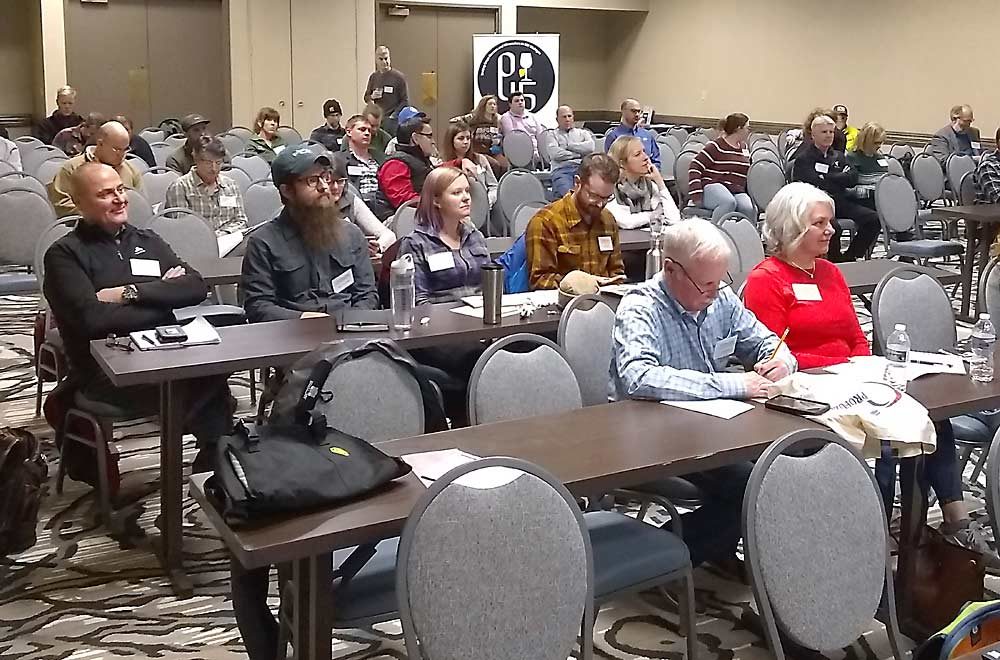
The 2020 Northwest Michigan Orchard and Vineyard Show is being held Jan. 14–15 near Traverse City, Michigan.
The morning tree fruit sessions on day one focused on wildlife management. Here are a few tidbits from the sessions:
Michigan State University’s Catherine Lindell discussed using lasers for bird control.
—Michigan sweet cherry growers estimate 13-percent losses to bird damage. If growers didn’t do any management, they estimate they would lose 37 percent of their crop. So, management helps.
—Studies have shown laser bird control can work in sweet corn and possibly in blueberries; in tree fruits it’s uncertain because no studies have yet been done.
MSU’s James DeDecker talked deer fencing.
—The number of recreational hunters in the state is going down, so hunting is not a long-term solution for deer control.
—Chemical repellents are not totally effective by themselves but should be part of any deer management toolbox.
MSU’s Gary Roloff discussed a problem that might be particular to Northwest Michigan: black bears raiding beehives.
—Michigan’s black bear population is growing. Its population of native pollinators is shrinking.
—More fruit growers in the state are using commercial beehives. This sets up more incidents of bears going after beehives.
—To deter bears, you want fencing that’s 100-percent effective. A single bear/beehive interaction can destroy the entire hive.
—Bears aren’t going after the honey in the hive. They want the larvae, which has lots of nutrients. But the honey and queen are often eaten, too. And the physical hive is often destroyed.
Roloff and his team are studying mobile, relatively small electric fences to deter bears. He made these recommendations:
—Fences must have adequate grounding, fiberglass corner posts and highly visible polytape wire.
—All wires should be charged with 3,500–7,000 volts.
—Install a low-impedence fence energizer.
—Perform regular maintenance, making sure you have adequate voltage, battery charge and fence structure.
—by Matt Milkovich






Leave A Comment